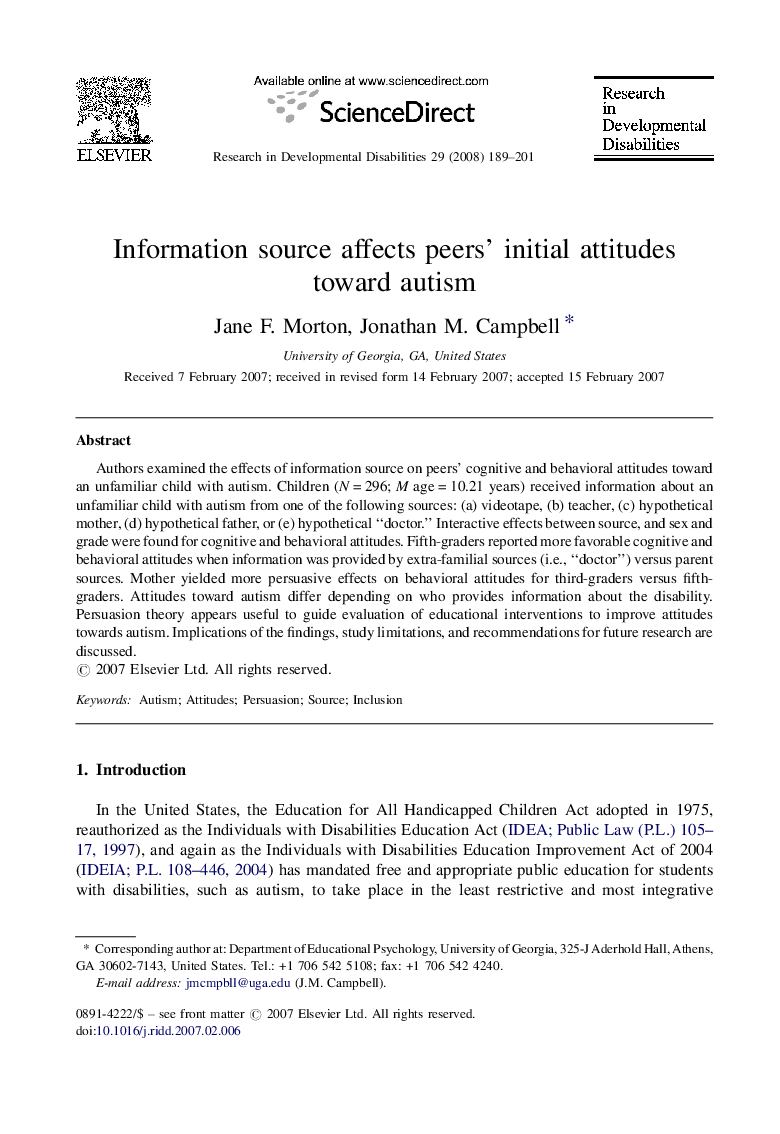| Article ID | Journal | Published Year | Pages | File Type |
|---|---|---|---|---|
| 372125 | Research in Developmental Disabilities | 2008 | 13 Pages |
Authors examined the effects of information source on peers’ cognitive and behavioral attitudes toward an unfamiliar child with autism. Children (N = 296; M age = 10.21 years) received information about an unfamiliar child with autism from one of the following sources: (a) videotape, (b) teacher, (c) hypothetical mother, (d) hypothetical father, or (e) hypothetical “doctor.” Interactive effects between source, and sex and grade were found for cognitive and behavioral attitudes. Fifth-graders reported more favorable cognitive and behavioral attitudes when information was provided by extra-familial sources (i.e., “doctor”) versus parent sources. Mother yielded more persuasive effects on behavioral attitudes for third-graders versus fifth-graders. Attitudes toward autism differ depending on who provides information about the disability. Persuasion theory appears useful to guide evaluation of educational interventions to improve attitudes towards autism. Implications of the findings, study limitations, and recommendations for future research are discussed.
